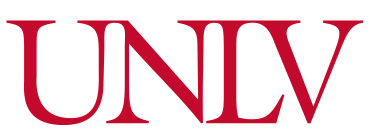LAS VEGAS — This election season, multiple social issues — from transgender bathrooms to the gender wage gap to injustices against racial minorities — have become hot-button topics. The third and final presidential debate for the 2016 general election will be held at UNLV’s Thomas & Mack Center Oct. 19.
UNLV has experts available to provide commentary that helps local, national, and international media add context. Visit our website for a full list of experts or debate-related activities/events.
Georgiann Davis (LGBTQIA issues): This sociology professor has racked up thousands of web hits with personal essays and news publications exploring how intersex and LGBTQ people fit into American society. And she has a personal connection: Since 2008, Davis, who was born with complete androgen insensitive syndrome — meaning she has an outward female appearance, but possesses XY chromosomes — has studied how the intersex community deals with everything from the medical community to marriage to young child/parent relationships.
Elizabeth MacDowell (family justice and domestic violence law): MacDowell is director of the William S. Boyd School of Law's Family Justice Clinic, a facility focused on the intersection of family law with criminalization, child welfare, and other forms of state intervention into families. Her research centers on issues including race, class, gender, domestic violence, access to justice, and the impact of criminalization on low-income families.
Joanne Goodwin (women’s rights): History professor Goodwin is director of the Women's Research Institute of Nevada at UNLV. Her teaching interests lie in 20th century U.S. history with a specialization in gender, social politics, and women in Las Vegas and throughout the west. To that end, she has worked with others to create the Nevada Women's Archive at UNLV and also directs the Las Vegas Women Oral History Project.
Barbara Brents (political sociology and sexuality): Brents has spent over 25 years studying political sociology, gender and sexuality, urban sociology, and public sociology. Her research focuses on the sex industry as a way to understand the intersections of culture and economics, political debates around sexuality, the relationship between tourism, consumption, and sexuality, and the emotional and bodily labor of selling sex. She is teaching a class this fall that explores how themes such as class, race, gender, and sexual power relate to the 2016 presidential race.
Brandon Manning (African-American studies and gender/sexuality studies): Manning's research and teaching areas include African American literature and culture, Black feminist thought, queer theory, and popular culture. This fall he is teaching a Black Lives Matter course, and he was recently featured in a UNLV story on the subject.
Addie Rolnick (race and criminal law; indigenous rights/federal Indian law): Rolnick is a William S. Boyd School of Law professor whose research and teaching interests include criminal and juvenile justice, civil rights, critical race theory, federal Indian law, and indigenous rights. She has been featured in UNLV articles about the Black Lives Matter movement and the role of race in self-defense killings.
Julia Lee (African-Americans in history, literature, and television): Korean-American Julia Lee's upbringing in Los Angeles, where she watched how the 1991 police beating of Rodney King and looting that followed impacted her immigrant parents' liquor store, strongly influenced the English professor's interest in race relations. Lee — whose interests include Black literature/history and racial representations in early film and television — blogs on the topic for the Huffington Post. She continues in 2016 to make the media rounds regarding her latest book, "Our Gang: A Racial History of The Little Rascals."
A.B. Wilkinson (race and politics in U.S. history; mixed-race heritage): Wilkinson's teaching interests include Colonial North America, the U.S. Revolutionary Era, African-American and Native American history, the U.S. South and slavery, and critical race theory in the Americas. He specializes in studies of mixed-heritage people and ideas concerning racial mixture in early U.S. history. He is teaching an election-themed course this fall called "The News in Historical Perspective: Race, Class, and Gender in the 2016 Election."
